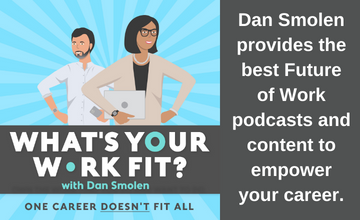Podcast: Play in new window | Download (Duration: 40:46 — 56.0MB)
Fostering a civil workplace is key to the future of work.
As organizations reintroduce their people to the workplace, they must also reckon with social responsibility.
It is one thing for management to express a desire for positive social change. It is quite another to “walk the talk” to create a civil work environment.
Sejal Thakkar understands the sting of incivility like few others. During her teenage years in the Chicago suburbs, she suffered from near daily racial prejudice and bullying.
Now, as a self-described Chief Civility Officer; Sejal uses her personal experience to provide effective workplace training that fosters civility.
In this episode, Sejal:
- Describes her role as Chief Civility Officer for TrainXtra. Starts at 2:57
- Relives growing up as a bullied “other” in the Chicago suburbs. Starts at 4:26
- Relates the experience of representing clients accused of workplace incivility, bias, and discrimination. Starts at 7:52
- Defines the term microagression. Starts at 21:58
- Pairs the civility narrative with the return to the workplace. Starts at 29:39
- Explains how fostering a civil workplace provides positive ROI benefits. Starts at 32:12
In the wake of Covid, remote work, and civil unrest, Sejal believes that we have hit an inflection point for fostering a civil workplace:
“[There have been] so many things happening in such a short period of time that people are not putting up with B.S. at work, anymore.”
About our guest:
Sejal Thakkar earned a Bachelor of Science in Accounting from the University of Illinois at Urbana-Champaign and a Juris Doctorate from Northern Illinois University. She is a TEDx speaker focused on bias. Sejal lives and works in the Bay Area of California.
EPISODE DATE: April 30, 2021
Social media:
